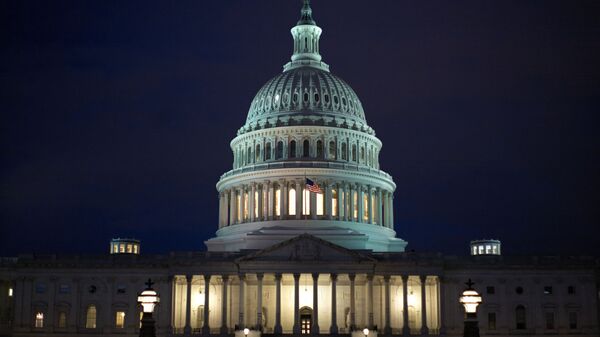US President Donald Trump on Friday signed a two-day government funding bill to avert a potential shutdown amid the ongoing COVID-19 pandemic.
Earlier, the measure was approved by the US Senate, and passed in the US House of Representatives with a vote of 320 to 60.
The continuing resolution will extend government funding through Sunday in order to allow negotiations over a full-year spending measure and a COVID-19 relief bill to continue.
After Trump signed the bill, however, congressional lawmakers will still find themselves on a tight deadline over the weekend. The House isn't expected to meet again until Sunday at 12 p.m., and the Senate is scheduled to return at 11 a.m. on Saturday.
Prior to the vote, US Senate Majority Leader Mitch McConnell (R-KY) had indicated that he was "even more optimistic now than I was [Thursday]" about seeing the temporary funding bill passed before the deadline was reached.
Sens. Bernie Sanders (I-VT) and Josh Hawley (R-MO) were largely seen as two officials to hold up the bill as they called for leadership to include $1,200 direct payments in the COVID-19 relief package officials are still negotiating. However, neither of the pair followed through, with Sanders withdrawing his objection entirely after giving a speech on stimulus payments.
“Majority Leader McConnell and I do not agree on much, but as I understand it we are in agreement on at least one point, and that is that the Senate cannot go home until a COVID emergency relief bill is passed," Sanders said late Friday.
Congressional leaders had indicated earlier in the week that they were closing in on an agreement after spending months not seeing eye-to-eye on relief options. House Majority Leader Steny Hoyer (D-MD) told reporters Friday that there was "still some significant issues outstanding" in the way of the $900 billion COVID-19 relief package.
The hefty relief package is tied to the $1.4 trillion full-year spending bill that officials are trying to find common ground on.
The passage of the continuing resolution comes nearly two years after the US government found itself turning off the lights over disputes with Trump regarding the $5.7 billion requested funding for the construction of the steel-and-concrete reinforced wall along the US-Mexico border.


